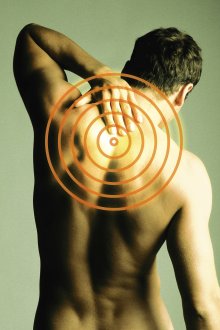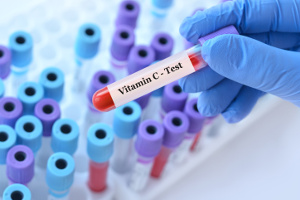Persons treated with statins benefit from Q10
Dan ish researchers have shed some light on the longstanding mystery: Why do we see so many people treated with cholesterol-lowering statins experiencing muscle pain and in some cases, also impaired glucose tolerance. The answer is a lack of Q10!
ish researchers have shed some light on the longstanding mystery: Why do we see so many people treated with cholesterol-lowering statins experiencing muscle pain and in some cases, also impaired glucose tolerance. The answer is a lack of Q10!
The scientists were able to demonstrate that the cholesterol-lowering drug Simvastatin reduces the amount of coenzyme Q10 in the muscles, whereby the so-called oxidative phosphorylation is reduced. Oxidative phosphorylation is the process by which the muscles cleave ATP molecules which are chemically bound energy. In short, the theory goes that when the muscles have to work with too little energy available, pain occurs.
Blood sugar also affected
10% of the sedentary patients and as much as 75% of athletes who are treated with a statin drug experience side effects such as muscle pain. In addition, researchers have demonstrated that the subjects who received a statin drug had blood sugar problems in the form of impaired glucose tolerance and insulin sensitivity, a condition in which the body's cells have a reduced uptake of glucose from the blood.
This new study adds to the growing pile of evidence that statins, although they are effective cholesterol-lowering agents, do come with a price.
Reduced Q10 production
What seems to be the underlying cause of these symptoms is that statins not only inhibit the liver's production of cholesterol, but also the body's production of coenzyme Q10, which is responsible for generating energy in the cells 'powerhouses' the mitochondria, which ia mostly noticed in high-energy consuming cells such as muscle cells.
When muscle cells are unable to produce sufficient energy to function properly, problems such as pain and muscle weakness occur making it hard to exercise. It therefore seems logical that athletes more often complain of side effects from statins than "couch potatoes" do.
Supplementation with Q10 helps
Persons taking a daily supplement of Q10 along with their statin drug, can counteract the risk of side effects from the statin. This was shown in a study from 2007, when American scientists gave statin users with pain either a daily supplement of coenzyme Q10, 100 mg or a similar placebo preparation for a month. The study showed that patients who supplemented their medication with coenzyme Q10 had a 40% reduction in muscle pain and felt far less troubled by side effects than those in the control group who received placebo.
Refs.
Larsen S, et al. Simvastatin Effects on Skeletal Muscle. Relation to Decreased Mitochondrial Function and Glucose Intolerance. J Am Coll Cardiol. 2013;61(1):44-53.
Caso G, et al. Effect of coenzyme Q10 on myopathic symptoms in patients treated with statins. Am J Cardiol. 2007;99(19):1409-12.
Comments
There are differences in the safety profile and side effects of various statin drugs.
If one can not tolerate statins, omega-3-fatty acids are likely to also help. In a scientific study of patients who had had a heart attack, a daily supplement of 400 mg of EPA and DHA (found in fish oil) and also 2 grams of alpha linolenic acid (found in flaxseed oil) reduced the risk of a heart attack by 54% compared to the group not receiving these supplements.
An unofficial rule of thumb is that you should take 100 mg Q10 for each 20 mg of statin.
What are statins?
Statins are a class of cholesterol-lowering drugs that work by inhibiting the enzyme HMG-CoA reductase, which is plays a central role in the liver’s synthesis of both cholesterol, dolichol and coenzyme Q10.
What is alpha linolenic acid?
Alpha linolenic acid (ALA) is a type of omega-3 fatty acids found in plants such as flaxseed, canola, soy and walnuts. ALA is effective for maintaining normal cholesterol levels. The body is only to a limited extent able to convert ALA to EPA and DHA found in fish oil.
Search for more information...
- Created on .








 Most people are unaware of vitamin C’s key role in mental health and mood. According to a large population study that is published in Frontiers in Nutrition, having higher levels of
Most people are unaware of vitamin C’s key role in mental health and mood. According to a large population study that is published in Frontiers in Nutrition, having higher levels of 



 "After about one week of taking the Q10 supplement I could feel a huge difference," says 23-year old Alan Piccini, who has been suffering from extreme fatigue and muscle aches ever since he was a child.
"After about one week of taking the Q10 supplement I could feel a huge difference," says 23-year old Alan Piccini, who has been suffering from extreme fatigue and muscle aches ever since he was a child. “Taking capsules with co-enzyme Q10 has freed me of the severe side effects of my cholesterol lowering medicine,” Mrs Franken explains.
“Taking capsules with co-enzyme Q10 has freed me of the severe side effects of my cholesterol lowering medicine,” Mrs Franken explains.